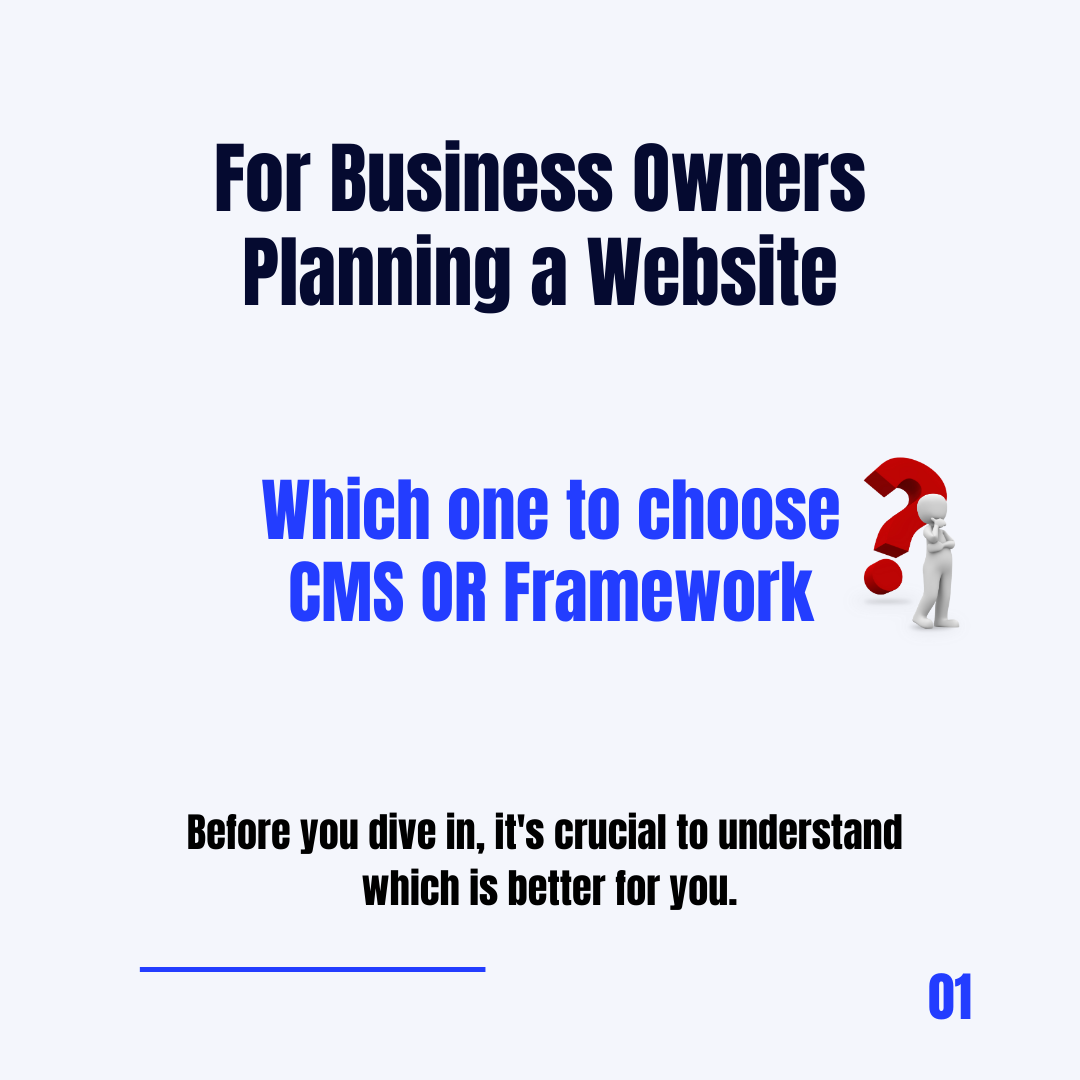When planning to build a website for your business, one of the most critical decisions you'll face is choosing the right platform. The choice between a Content Management System (CMS) like WordPress, Drupal, or Joomla and a web development framework like Laravel, CodeIgniter, or Symfony can significantly impact your business's growth and success.
Understanding the strengths and weaknesses of each option will help you make an informed decision tailored to your specific needs.
Why Choose a CMS?
Content Management Systems (CMS) are designed to simplify the website development process. Here’s why they might be the right choice for you:
- Cost-Effective: CMS platforms are ideal for businesses on a budget, offering a more affordable option for website development.
- Time-Saving: They significantly reduce development time, allowing you to get your website up and running quickly.
- Ease of Use: With a wide range of plugins and themes, CMS platforms make it easy to customize your site without extensive coding knowledge.
- Fast Development: You can rapidly launch your website with minimal hassle, making it perfect for projects with tight deadlines.
However, CMS platforms come with their own set of challenges:
- Security Concerns: CMS platforms are often more vulnerable to security threats.
- Performance Issues: They can be slower compared to frameworks due to unnecessary files and features.
- Risk of Hacking: As popular targets for hackers, CMS platforms require ongoing maintenance to stay secure.
Why Choose a Framework?
Frameworks like Laravel, CodeIgniter, and Symfony are robust tools for developing high-quality, scalable websites. Here’s why a framework might be the better choice:
- Top-Tier Security: Frameworks offer the highest level of protection, making them ideal for businesses that handle sensitive information.
- High-Quality Work: They ensure a professional and polished result, with the ability to create a truly custom website.
- Scalability: Frameworks can easily handle growing traffic and the addition of new features.
- Faster Loading Speeds: Optimized for performance, frameworks help deliver a faster, more responsive website.
- Unlimited Customization: Frameworks allow you to tailor every aspect of your site to your specific needs.
- Expert-Level Development: They require advanced coding skills, which often results in a higher-quality product.
On the flip side, frameworks can be more expensive and time-consuming:
- Higher Costs: Typically, frameworks are 20% more expensive than CMS options.
- Longer Development Time: Developing a site with a framework requires more effort and time from your development team.
- Not Ideal for Simple Projects: Frameworks may be overkill for basic websites.
- Developer-Dependent Quality: The final product's quality is heavily dependent on the developer's expertise.
Conclusion: CMS or Framework – Which One is Right for You?
The decision between a CMS and a framework ultimately comes down to your business’s specific needs and goals. If you’re looking for a cost-effective, quick-to-develop website with plenty of customization options, a CMS might be your best bet. However, if security, scalability, and high performance are your priorities, investing in a framework could be the smarter choice.
Need help deciding? Contact me today to ensure your website is built on the right platform for your business growth.
